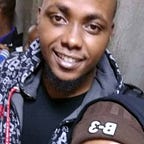MWash App — Water Info For Sierra Leone
M-Wash is my first ever civic technology project for Code For Sierra Leone. Just like every project I have encountered before, I have to understand the project outcome and the targeted user.
M-Wash’s goal is to provide information about basic facilities in ensuring the provision of safe drinking water for citizens in Sierra Leone. The information is provided when the users engage the application through SMS and on the web browser on their mobile phones. Moreover the information provided to users can be more useful when the community actively contribute by updating the status of the water points through the same channels.
For this to work efficiently for the people of Sierra Leone, they have to access meaningful information easily, anywhere and at low cost through the convenience of the mobile operator and internet provider. The data contains 28,845 water points, I have been able to break down the most important variables that will be useful to provide meaningful insights, such as:
Seasons — Are the water points seasonal or do they run all year round?
Province — There are 4 Provinces in Sierra Leone.
Water Source Quality — The sanitary conditions of the water sources.
Paying Water Sources — Do people pay for water or do they access it for free.
Repair Parts Availability — How far are people able to access spare parts and tools to fix and maintain the water points.
Chlorinated Water Sources — How many water points have treated water points?
Where Should I Start?
Well I like starting with the easiest one first. Building a cool lightweight responsive user interface application for the web. For data visualization I will use CartoDB. CartoDB provides an array of options to visualize and update existing data. Building for SMS will be quite a challenge but easier in the long run.
Finding a reliable SMS Gateway service with inbound and outbound SMS charges that are cost friendly to every individual especially the rural poor and marginalized people.
To achieve the above, I have set up my week milestones below:
Week 1 (20th Jan — 28th Jan)
- Develop Project Initial Blog — *Done
- Explore water points data analysis with CartoDB and Carto.js.
- Establish public servers for deployment of the application.
- Explore CartoDB SQL API that will select and update the dataset.
Week 2 (29th — 4th Feb)
- Develop a UI with MaterialCSS Framework for the web app front end
Week 3 (5th Feb — 11th Feb)
- Visualize data on the web app with carto.js.
- Enable users to filter data.
- Enable users to update data on the web app.
- Create an admin panel/page for admin to create training and discuss events.
- Create a progress blog post about the project.
Week 4 (12th Feb — 18th Feb)
- Deployment and Test of the Web App to the public servers.
Week 5 (19th Feb — 25th Feb)
- Explore a reliable SMS Gateway convenient for Sierra Leone people with POCs.
Week 6 (26th Feb — 4th March)
- Develop an SMS format to be queried by users from their phones.
- Users can query their nearest water source by providing the location via SMS
- Users can provide feedback by stating the conditions of the water source via SMS
- Users will be prompted of training and discussion events via SMS.
Week 7 (5th March — 11th March)
- Deployment and Test of SMS format to the public.
Week 8 (12th March — 20th March)
- Create a final blog post about the project
The d|Bootcamp in Sierra Leone was based on a Code for Africa model first pioneered in Kenya in 2012 that has since been adopted across the world, with 32 bootcamps hosted in 27 countries. The Freetown event follows Code for Africa’s earlier pioneering work in Sierra Leone, where it partnered with the World Bank to help kickstart data scraperthons during a 6-week Open Data Festival 2016 in March 2016. You can read about the scraperthons here.
Code for Africa (CfAfrica) is the continent’s largest independent open data and civic technology initiative. We seek to build digital democracies that give citizens timely and unfettered access to actionable information that empowers them to make informed decisions and that strengthens civic engagement for improved public governance and accountability.
CfAfrica operates as a federation of autonomous country-based digital innovation organisations that support ‘citizen labs’ in nine countries and major projects in a further 15 countries. There are CfAfrica affiliate labs in Cameroon, Ethiopia, Ghana, Kenya, Nigeria, Sierra Leone, South Africa, Tanzania, and Uganda.
CfAfrica runs Africa’s OpenGov Fellowships and also embeds Innovation Fellows into newsrooms and social justice organisations to help liberate data of public interest, or to build tools that help empower citizens.
In addition to fellowships and citizen labs, CfAfrica runs the $1 million per year#innovateAFRICA fund plus the $500,000/year #impactAFRICA fund and the $500,000/year Sandbox Fund which all award seed grants to civic pioneers for experiments with everything from camera drones and environmental sensors, to encryption for whistleblowers and data-driven semantic analysis tools for investigative watchdogs.
CfAfrica also curates continental resources such as the africanSPENDINGportal of budget transparency resources, the openAFRICAdata portal, the sourceAFRICA document repository, and the connectedAFRICA transparency toolkit for tracking the often hidden social networks and economic interests in politics.
CfAfrica is furthermore custodian of the continental 30,000 strong Hacks/Hackers community, and incubates the continent’s largest investigative journalism initiative, the African Network of Centers for Investigating Reporting (which spearheaded the #PanamaPapers investigations on the continent).
